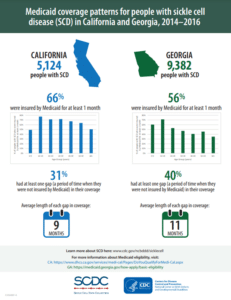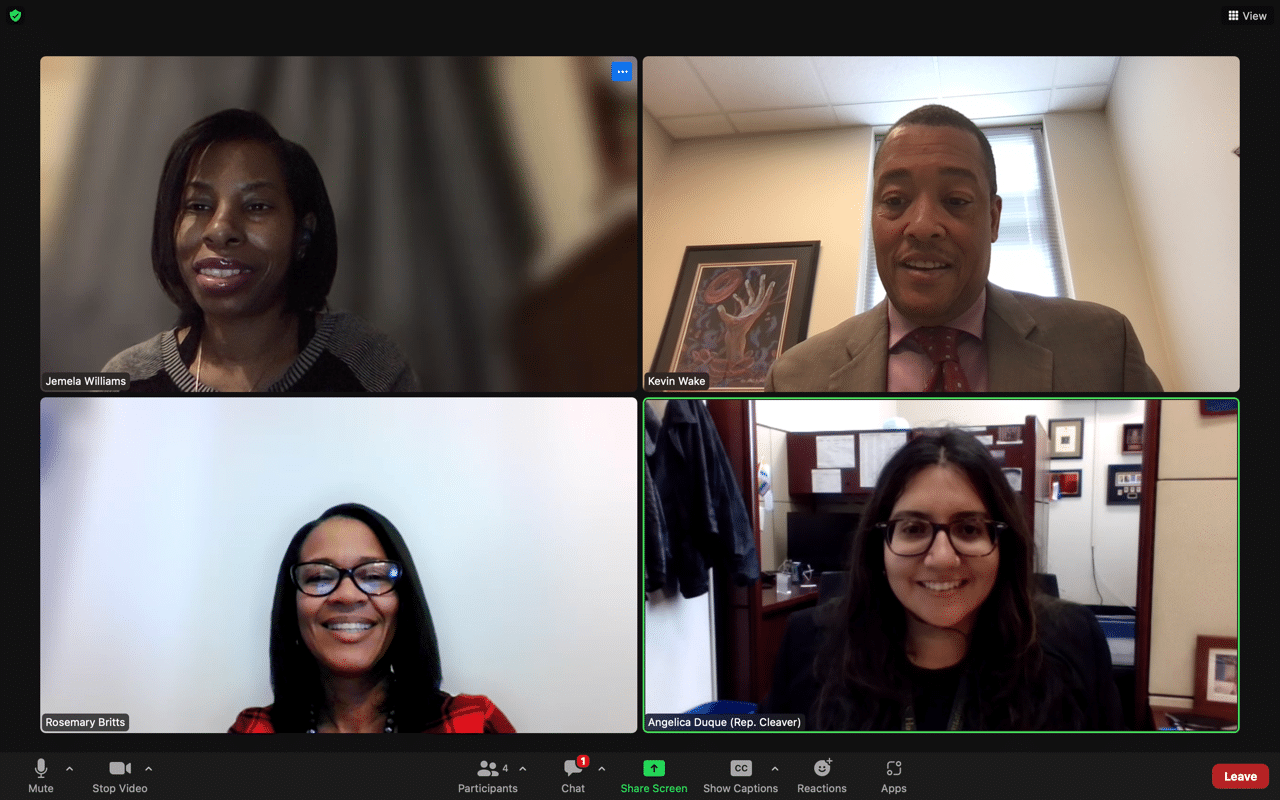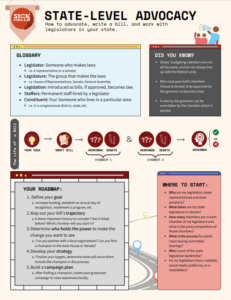Introduction
This year has seen a lot of activity with sickle cell legislation. For example, in March 2023, the Sickle Cell Disease Comprehensive Care Act was reintroduced in Congress, aiming to increase access to care for people with sickle cell disease (SCD) insured by Medicaid. Alongside this important piece of federal legislation and others, individual states are continuing the work of improving access, care, and research for individuals affected by SCD.
In 2022, Sick Cells conducted an analysis of existing state legislation specific to sickle cell disease. We also provide monthly updates on notable state bills. This blog highlights some of the state bills we have been covering and why they are important.
Why is state legislation for sickle cell so important?
Advocacy at different levels of government yields results that impact people in different ways. While federal legislation helps set nation-wide standards, state legislation can often moves more quickly than federal legislation, bringing timely changes to processes that could be the difference between life or death. In certain instances, funding at the state level for sickle cell programs is often higher than funding at the federal level. This means that some states are able to provide support for members of the SCD community in ways the federal government may not. Therefore, it is important to track both what is happening in your state and what is happening at the federal level.
Below are some terms that are good to know when advocating for legislative changes:
Legislation: Legislation is introduced as bills, and once they are passed, become law
Legislature: The group that makes laws. At the federal level, the legislature is composed of two chambers: the House of Representatives and the Senate, and together they make up Congress. At the state level, all states except Nebraska have two chambers in the legislature.
Authorization Bill: Legislation to establish a proposed governmental program. Authorizations may be for a specified amount of money, but do not actually provide any money.
Appropriations Bill: Legislation to provide the money required to fund governmental departments and programs previously established by authorizing legislation.
To learn more about state-level advocacy, please visit Sick Cell’s State-Level Advocacy Toolkit.
State legislatures consider SCD issues
This blog will focus on three states and their efforts to advance SCD legislation in the past year. Below are some definitions from the National Library of Medicine that provide some context to better understand these bills.
- Disease registry: “A disease registry is a system of data collection and communications with individuals affected by a particular disease. Such systems may be sponsored by government, disease advocacy organizations, pharmaceutical or device companies, or other entities. Patients typically consent to participate and share identifying and health information with the sponsor. Sponsors may provide benefits, such as education and information, access to health records, or information about clinical trials.”
- Screening: “Screening is the act of identifying the presence or absence of a disease or carrier state in a person. With respect to SCD in the United States, such screening typically takes place either at birth (NBS) or in the prenatal period. Screening may also be done for SCT at birth or any time throughout the life course. Symptomatic people who were not screened at birth may receive diagnostic testing for SCD.”
Florida expands screening efforts
Florida signed a SCD bill into law on June 18, 2023 after a similar bill died in regular session last year. The new law requires newborn and infant screening providers to notify parents and guardians of the results. It also requires those results to be sent to the Department of Health (DoH). Screening of newborns and infants is mandated in all 50 states, Washington D.C, and all U.S territories, but follow-up on the results varies by state. Screening combined with proper follow-up can prevent young children from experiencing severe complications that contribute to infant and childhood mortality. Coordinated care helps ensure that individuals do not fall through the cracks after diagnosis. Communicating diagnoses both to the state and to the family is an important step in making sure families new to the sickle cell disease community are connected with local resources and have experts available to answer their questions.
The bill also requires the DoH to establish a SCD registry in the state. Having a registry is an important tool for research, clinical care, and tracking trends in the community. It can also be an immensely valuable tool for clinical trials of SCD related treatments.
You can read more about the Florida bill in our June Policy Memo.
Texas SCD legislation blocked by governor
In Texas, a bill was introduced to create and maintain a registry for sickle cell disease. However, the bill was vetoed by the governor on June 17, 2023 despite unanimous “Ayes” in the State House and Senate. Having a registry in the state would have meant the ability to provide valuable information about the SCD population and their research needs.

Medicaid coverage patterns for people with sickle cell disease (SCD) in California and Georgia, 2014–2016.
There is currently no nation-wide registry for SCD, currently only 11 states are collecting data through the Centers for Disease Control and Prevention (CDC) Sickle Cell Disease Data Collection (SCDC) Program. This only accounts for about 35% of the individuals with SCD, which is why it’s so important to support efforts of creating and expanding SCD registries.
Federal programs like the CDC SCD Data Collection Program inform other federal initiatives and can help encourage increased funding in the states and across the country.
Oregon to consider improving SCD care
An Oregon bill that would establish a statewide steering committee on SCD is in the Ways and Means committee. If the bill is released by the committee, it is then voted on in the House, where it could be amended, or passed to the Senate to be considered.
A steering committee is an advisory group comprised of experts and stakeholders. Sometimes the first step in a state is to gather information on SCD prevalence, programs, and more. Establishing expert steering committees can help the Department of Health, state Medicaid program, and other health-related initiatives make decisions that impact the SCD community. It is important for state steering committees to have voices from the SCD community, so the needs of patients and caregivers can be prioritized.
More information on the bill can be found in our January Policy Memo.
Stay Connected!
State politics is just as dynamic as national politics and offers many opportunities to advocate for the needs of the SCD community. Across the country, some states are passing legislation that improves research efforts and increases access to resources for SCD warriors, while other states are experiencing roadblocks. But with constant advocacy on both the state and federal levels, SCD communities around the nation can work toward improved standards of living.
Continue to engage with Sick Cells for more information on future policy and legislation initiatives and opportunities for community engagement. Remember to check Sick Cells’ Advocacy Map for updates on the state level, and read our policy memos from 2023 that highlight other state legislations.

Jemela Williams, Kevin Wake, and Rosemary Britts meeting with Representative Cleaver’s office during the 2023 National SCD Policy Forum
Published July 26, 2023

